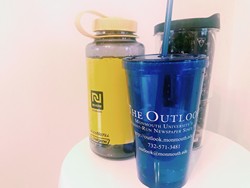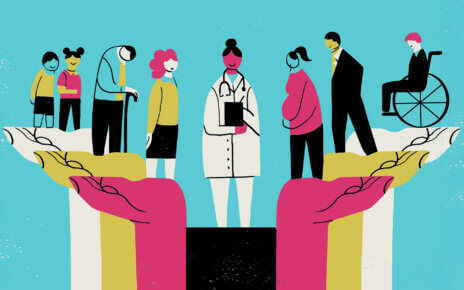Our environment is suffering, and there are things that every student can do to help it get better. No effort is too small; everyone has the power to create a positive impact.
Randall Abate, professor of political science and sociology, also serves as Endowed Chair in Marine and Environmental Law and Policy. Commenting on the current state of our environment, Abate said, “Global climate change is caused by many factors worldwide, but it has significant impacts here in Monmouth County.”
He continued, “Sea level rise, more intense storms, and more frequent episodes of coastal flooding, coastal erosion, and harmful algal blooms are just a few of the many climate change impacts in our area that are imperiling human health and safety, coastal infrastructure, the local economy, and marine and terrestrial plant and animal species.”
Some Monmouth University students are not involved in the cause to protect the environment, but everyone should recognize why it is important to care. “Students should care about these issues because they impact our daily lives and because we have a moral duty to serve as stewards of the environment to ensure that future generations inherit a habitable planet,” Abate continued.
A simple suggestion is to partake in the use of reusable products. “The easiest ways for students to minimize waste in their daily routines is by using reusable containers for cold and hot beverages,” Abate said.
Sara Sikora, senior communication student, shared, “I use a reusable water bottle that I either refill from my Brita or from water fountains around campus.”
If you are on a budget, measures like this will end up actually saving you money. Instead of having to buy a supply of plastic water bottles every week, you will only need to buy one container that you can refill forever. Some brands, such as Nalgene, are very affordable; you can get a BPA-free bottle for under $10.
Global corporations have been doing their part by making reusable containers more accessible to their customers. For instance, Starbucks announced this past week that they would give away a limited edition reusable cup to any customer who purchased a holiday beverage on Nov. 1. As an incentive to use the cup, customers would then get 50 cents off all future holiday beverages.
Starbucks also has established a plan to ban the use of plastic straws in their stores, which will further help eliminate waste. In place of plastic, stainless steel straws are becoming a highly beneficial trend, and you can purchase them right in our student center.
Helping the environment is not merely limited to the containers that we use for our food. In fact, the food itself can have a negative impact on our environment. “Adopting a vegan or vegetarian diet has a significant impact on reducing pollution and waste streams on a local, national, and global basis. Even simply reducing the number of days per week that an individual consumes meat can make a big difference,” Abate said.
If you needed a push to make veganism a part of your New Years’ resolution, this may be it. Not only will this decision help save animals, but it will help reduce pollution too.
The high amount of paper that every college student uses is also a concern. When printing assignments, make sure that you are only printing out necessary pages. “I only print what I absolutely need. For example, if I’m printing a journal article and do not need the references at the end, I will not print those pages because it is an easy way to save paper,” Sikora said.
Overall, there are so many easy ways for every student to help the environment. There is no excuse to sit back and do nothing.
Christi Ruggiero, senior communication student, said, “Not caring for our environment not only hurts our planet, but it hurts ourselves as well. Pollution has an effect on our health and well-being.”
The current generation is responsible for the future condition of the Earth. We only get one planet, and we all need to treat it with the respect that it deserves.
PHOTO TAKEN by Jenna Puglisi




